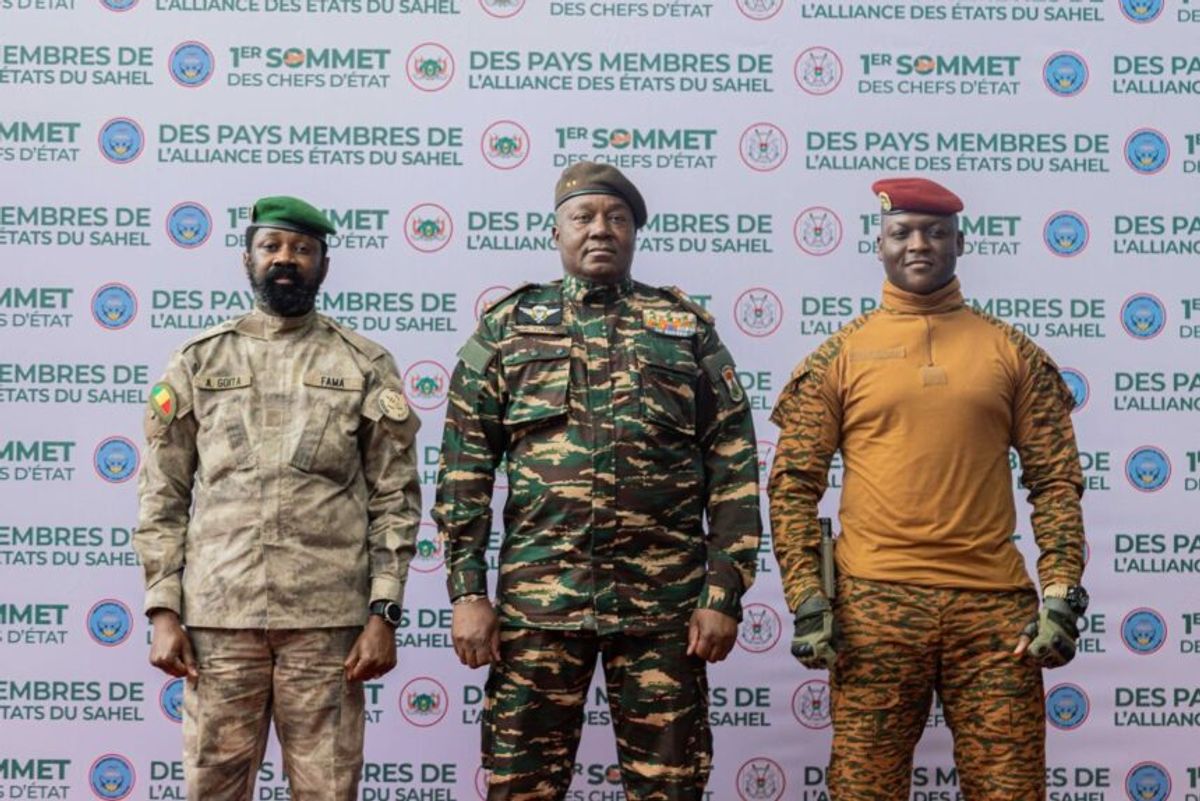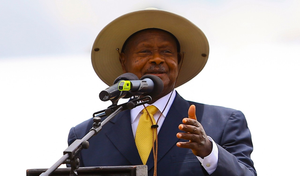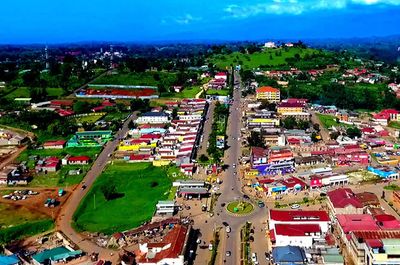
The Global Terrorism Index (GTI) has indicated that Mali’s army is struggling to combat Islamist insurgents in the Sahel region.
The attacks are carried out by two organisations: the Islamic State (IS) group, an affiliate in the Sahel; and Jama’at Nusrat al-Islam wal Muslimeen (JNIM), a branch of al-Qaeda. The GTI report notes that both groups have recruited more fighters, including child soldiers in the case of IS.
And recently, for the first time, Russian President Vladimir Putin warned the rest of the world not to meddle in the area lest he unleash a nuclear war on the world! He warned the pro-western coalition of Economic Community of West AFRICAN States (ECOWAS ), which include Europe and the USA to desist from any military intervention in Niger Republic, saying the war is planned to expand beyond Niger and set the entire region on fire. He said that only peaceful settlement through diplomatic means should be pursued.
He issued this warning during a phone call with the President of Mali, Asimi Goita.
Earlier today, shortly after the calls, Mali and Burkina Faso leaderships sent a strong warning to NATO from the Nigerien capital, Niamey, telling NATO not to dare try repeating in Niger what it did in Libya, as there would be far weightier consequences than they can imagine. “We will not accept the recurrence of NATO adventure in Libya in our region. Period!”
At the same time, Wagner PMC fighters are reported to have almost completely marked every nook and cranny of the Nigerien capital, Niamey in combat readiness. Hundreds of extra Wagner volunteers are reported to have arrived Niger boosting their troop levels in the country.
“In some instances, people tend to be at a point of choicelessness by the time they decide to join a militant group. These are very vulnerable communities,” says Ms. Beverly Ochieng, Senior Analyst specialising in Francophone Africa at Control Risks, a geopolitical risk Consultancy. The GTI report explains how political instability and weak governance are creating ideal conditions for insurgent groups to grow, pointing to conflict as “the primary driver of terrorism”.
And in a Podcast, Dr. Folahanmi Aina, an analyst of the Sahel at the School of Oriental and African Studies (SOAS), at the University of London, has said that, “The Sahel has experienced a breakdown in state society.”
These analysts have termed the “Sahel region of Africa is the epicentre of global terrorism and, for the first time, accounts for over half of all terrorism-related deaths.”
The new report says that in this semi-arid area to the south of the Sahara Desert, 3,885 people out of a worldwide total of 7,555 died. And it adds that while the global figure has declined from a peak of 11,000 in 2015, the figure for the Sahel has increased nearly tenfold since 2019, as extremist and insurgent groups “continue to shift their focus” towards the region.
The Sahel stretches from the west coast of Africa eastwards across the continent. Itincludes parts of ten countries: Burkina Faso, Mali, Niger, Cameroon, Guinea, The Gambia, Senegal, Nigeria, Chad and Mauritania.
The Sahel has some of the world’s highest birth rates, and almost two-thirds of the population is under 25. It has seen the rapid expansion of militant jihadist groups, according to the report.
IS-Sahel has reportedly doubled the amount of territory it controls in Mali since the country’s coups of 2020 and 2021 – largely in the east near its borders with Burkina Faso and Niger – while JNIM also continued to expand its reach, according to a UN panel of experts on Mali. “They’re trying to introduce new legal orders, to administer justice in particular based on Sharia. And in the process, they are competing with one another for land and influence,” explains Ms. Niagalé Bagayoko, the Chairperson of the African Security Sector Network.
The Sahel is now referred to as the “Coup Belt” of Africa. In the last five years alone, there have been six successful coups: two in Mali, two in Burkina Faso, one in Guinea and one in Niger. All these countries are now run by military juntas.
“It’s been informed by years of neglect from political leaders who haven’t necessarily prioritised people-centred governance, and local grievances have festered, resulting in terror groups trying to leverage these.”
There was a perception that civilian governments were unable to combat security threats from insurgent groups, “but despite these juntas taking over, they haven’t necessarily improved optics on the ground and insecurity has worsened,” says Dr Aina. “The junta are professionally unprepared for the rigours of governance.”
The GTI reports that Jihadist groups sustain their operations in the Sahel with a range of illicit economic activities, including kidnapping for ransom and cattle rustling.
The region has also become a key route for drug traffickers bringing cocaine from South America to Europe. “Drug trafficking represents one of the most financially lucrative illicit activities linked to terrorism in the Sahel,” notes the GTI report.
The report points out that some groups veer away from directly engaging in organised crime, preferring to “make money by imposing taxes or providing security and protection in exchange for payment. This model not only generates revenue, but also helps these groups integrate into local communities and strengthens their influence.”
The IS-Sahel and JNIM insurgent groups are also vying for control of the Sahel’s rich natural resources. Niger is the world’s seventh-largest producer of uranium, and unregulated artisanal gold mines found throughout the region. Unregulated mining of resources such as gold in the Sahel has helped fuel insecurity
Following the recent wave of coups, Sahel governments have pivoted away from Western allies, such as France and the US, towards China and Russia for support in tackling militants. “Right now, Russia is taking more assertive control over Russian paramilitaries in the region known as the Africa Corps [formerly Wagner],” says Ochieng.” Their work is to train and support the local armies to be able to counter the insurgency in the region, but so far it hasn’t been effective.”
As a result, the GTI report warns that there is now a risk of overspill beyond the so-called “epicentre of terror” to neighbouring countries. It says this may already be happening – Togo recorded 10 attacks and 52 deaths in 2024, the most since the index began. These were largely concentrated along the country’s border with Burkina Faso.
Ochieng agrees with this assessment, saying that “the expansion of militant groups within the region in countries like Benin or Togo or other coastal West African states, seems to be imminent”














Ikebesi Omoding
Ikebesi Omoding is the acclaimed author of a weekly column titled: From the Outside Looking In
Leave a Comment
Your email address will not be published.